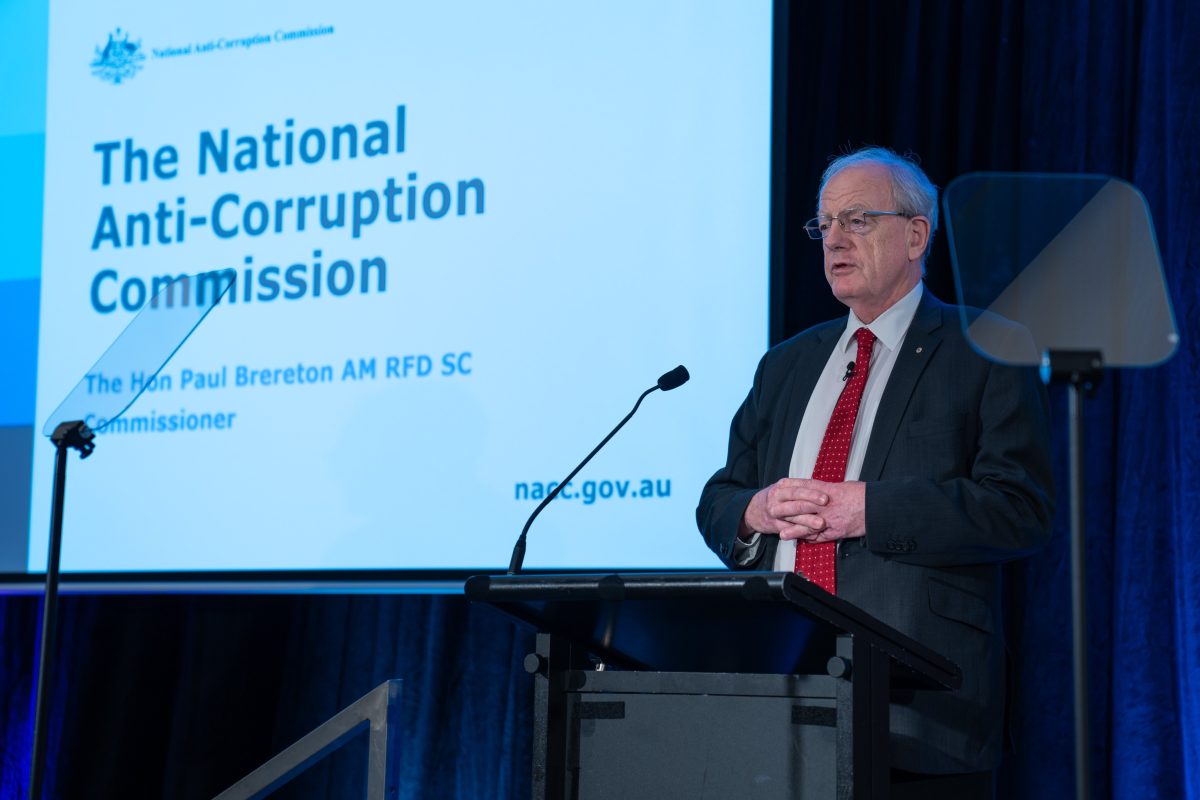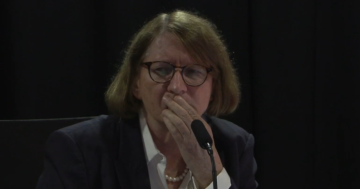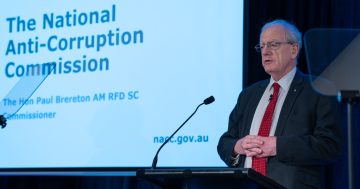
NACC Commissioner Paul Brereton: The conduct of six current or former politicians is being investigated by the National Anti-Corruption Commission. Photo: NACC.
The federal corruption watchdog has launched investigations into the conduct of six current or former politicians and a further three against parliamentary staff.
The National Anti-Corruption Commission released an update of its investigations on Wednesday (11 September), which stated the integrity authority is taking allegations of corrupt conduct against the six unnamed politicians seriously.
The NACC only began operation in July 2023 and launched 29 corruption allegations in the last financial year alone, with 26 still underway.
As at 11 September 2024, the Commission is conducting 32 preliminary investigations.
In the last week, one preliminary investigation was closed, with no corruption issue arising.
Of the 29 investigations, eight are joint investigations, and the NACC is overseeing or monitoring 17 investigations by other agencies.
In the last week, one additional matter was referred to an agency for investigation.
The Commission has six matters before the court. In the last week, one matter was concluded with a conviction.
There are 494 referrals pending assessment.
Its update also outlined that over the period from 1 July 2024 to midnight Sunday, 8 September 2024, the Commission received 459 referrals, excluded 364 referrals at the triage stage, and obtained two court convictions.
Of the 26 current corruption investigations that commenced during the 2023-24 reporting period, six relate to the conduct of current or former parliamentarians.
The NACC has released no further details of those investigations.
Of the other current investigations, three concern the conduct of current or former parliamentary staff, while another seven concern the conduct of current or former senior executive officials.
Eight investigations concern the conduct of law enforcement officials; four concern the conduct of consultants or contractors; eight relate to procurement; one to recruitment; four to corrupt conduct at the border; three relate to grants; and four relate to misconduct in law enforcement.
“The above categories do not capture all the corruption investigations, and some investigations fall under multiple categories, but they provide a flavour of the Commission’s activities,” the NACC statement said.
“In considering them, it is important to remember that most corruption investigations do not ultimately result in a finding of corrupt conduct.”
The NACC does not have to consider or respond to every referral it receives, and the Commissioner can decide not to take any action related to a referral.
If a referral raises a corruption issue, the Commission may deal with it by conducting a preliminary investigation to decide how to deal with the issue.
If the issue could involve serious or systemic corrupt conduct, the NACC can investigate the issue alone or jointly with a Commonwealth agency or a state or territory government entity. It can also refer the issue to the relevant Commonwealth, state or territory agency for investigation. It may also choose to take no action.
According to its own policy guidelines, the Commission may ask the person who referred the issue to provide more information if it deems there is not enough information to decide whether the referral could involve serious or systemic corrupt conduct.
In June this year, the NACC decided not to even begin a corruption investigation into those public servants referred to it by the Royal Commission into the Robodebt Scheme.
Its statement issued then said there was no value in “duplicating work that has been or is being done by others” and pointed to the Australian Public Service Commission and the investigatory powers of the Royal Commission itself.
“An investigation by the Commission would not provide any individual remedy or redress for the recipients of government payments or their families who suffered due to the Robodebt Scheme,” it said.
“The Commission has therefore decided not to commence a corruption investigation as it would not add value in the public interest.”
That decision by the NACC is now itself under investigation by Gail Furness SC, the independent Inspector of the National Anti-Corruption Commission.
She received nearly 900 individual complaints about the decision by the NACC not to launch a corruption investigation into the referrals concerning six public officials from the Royal Commission into the Robodebt Scheme.


















